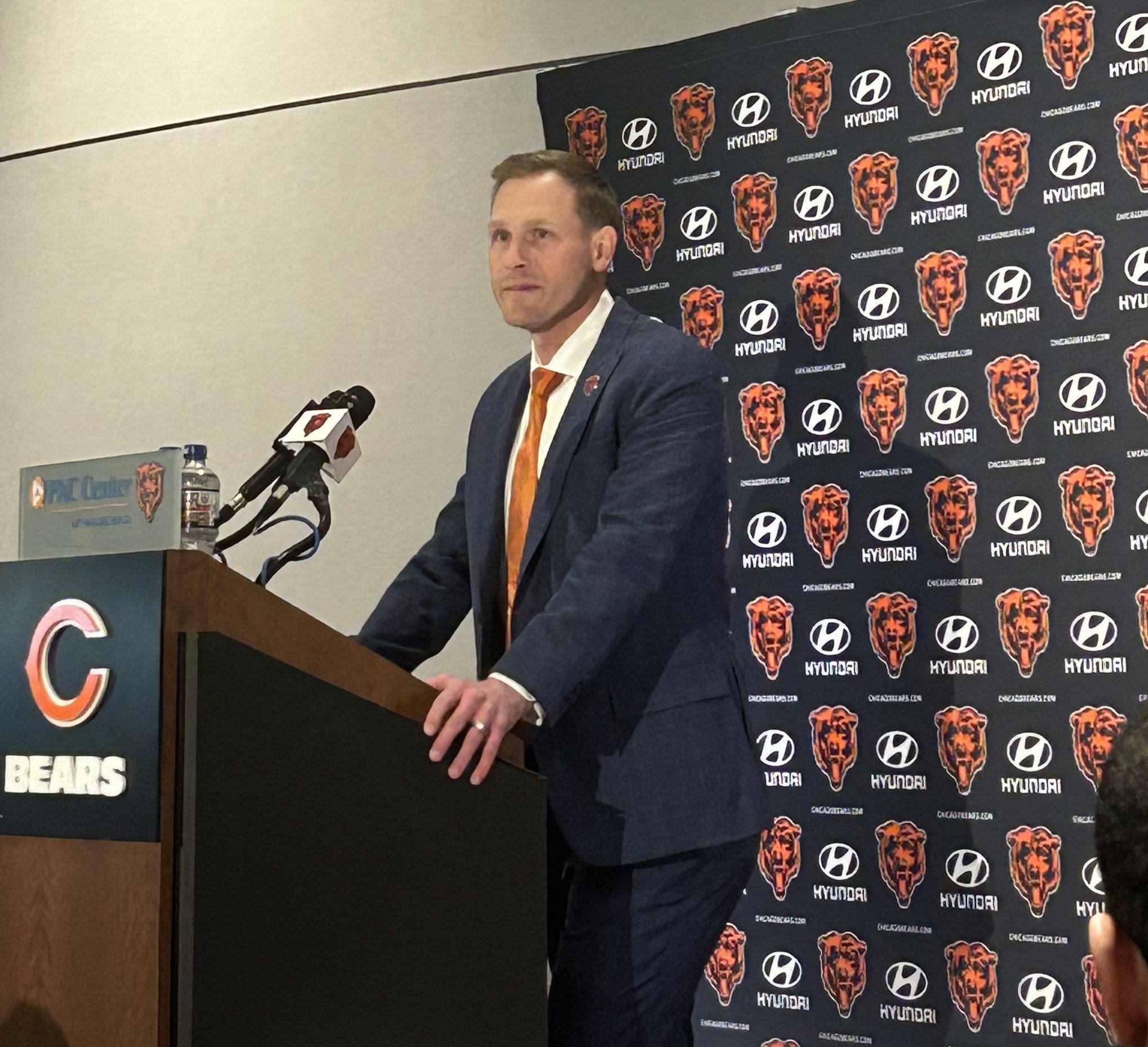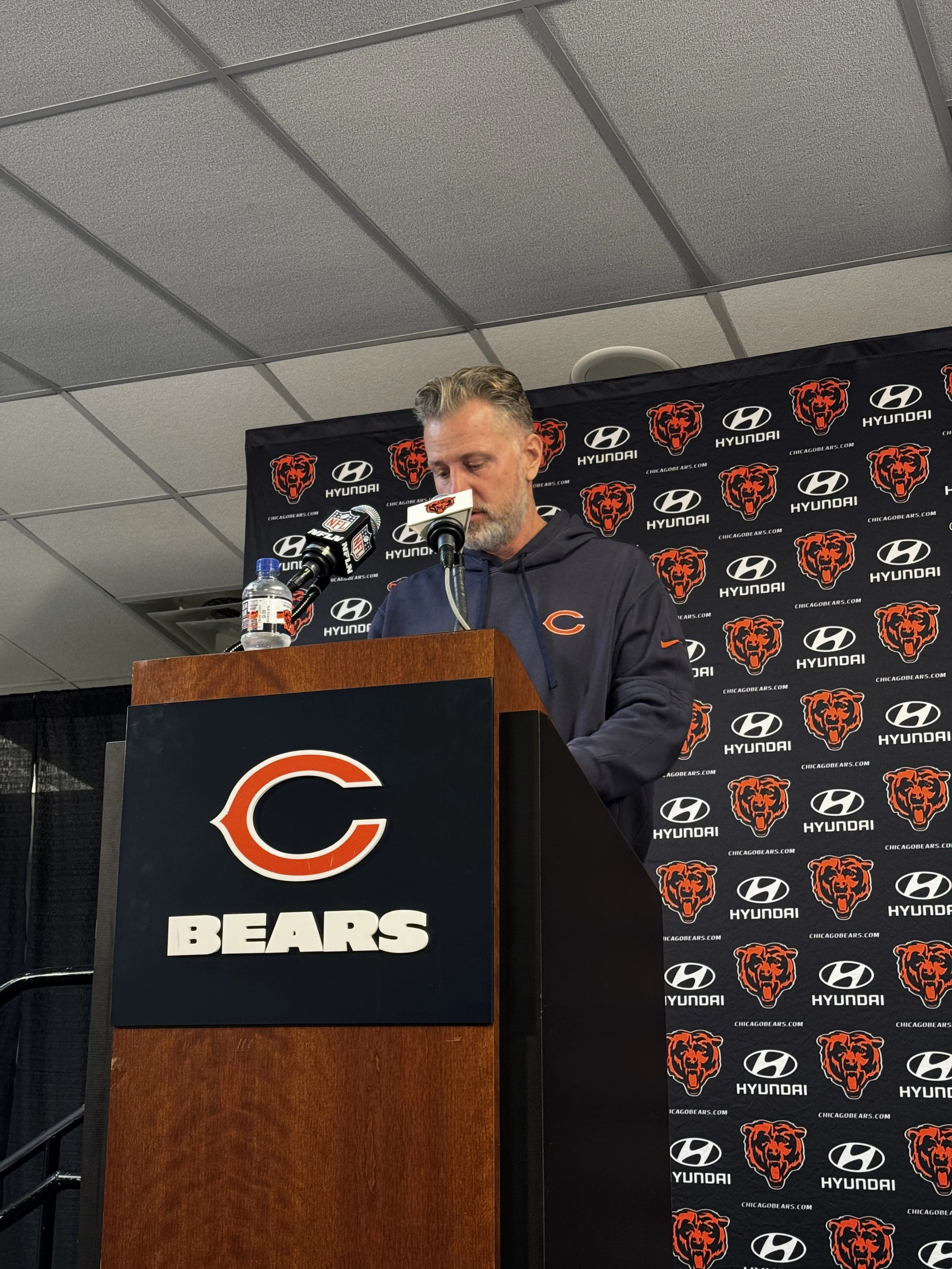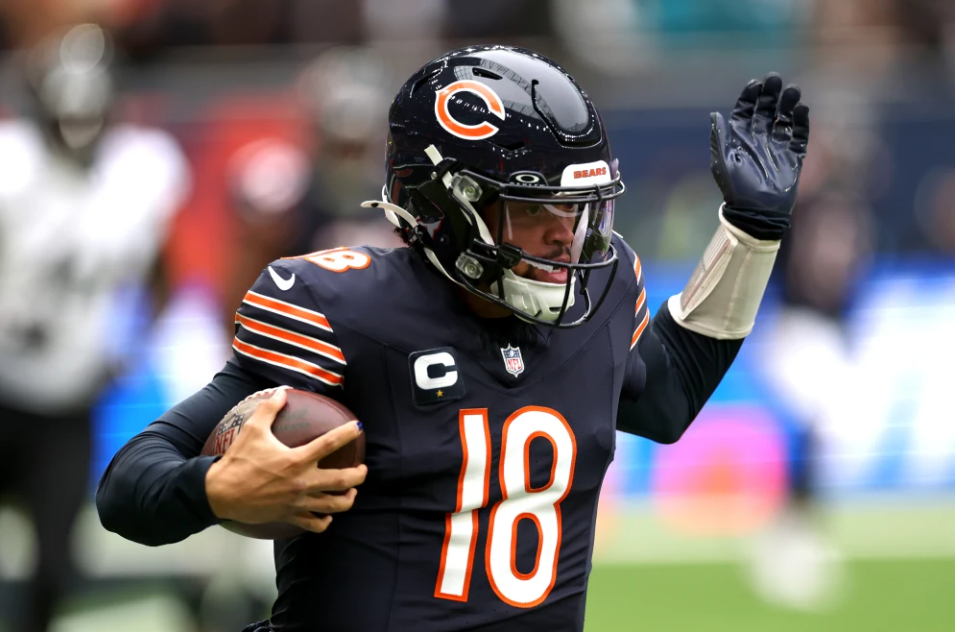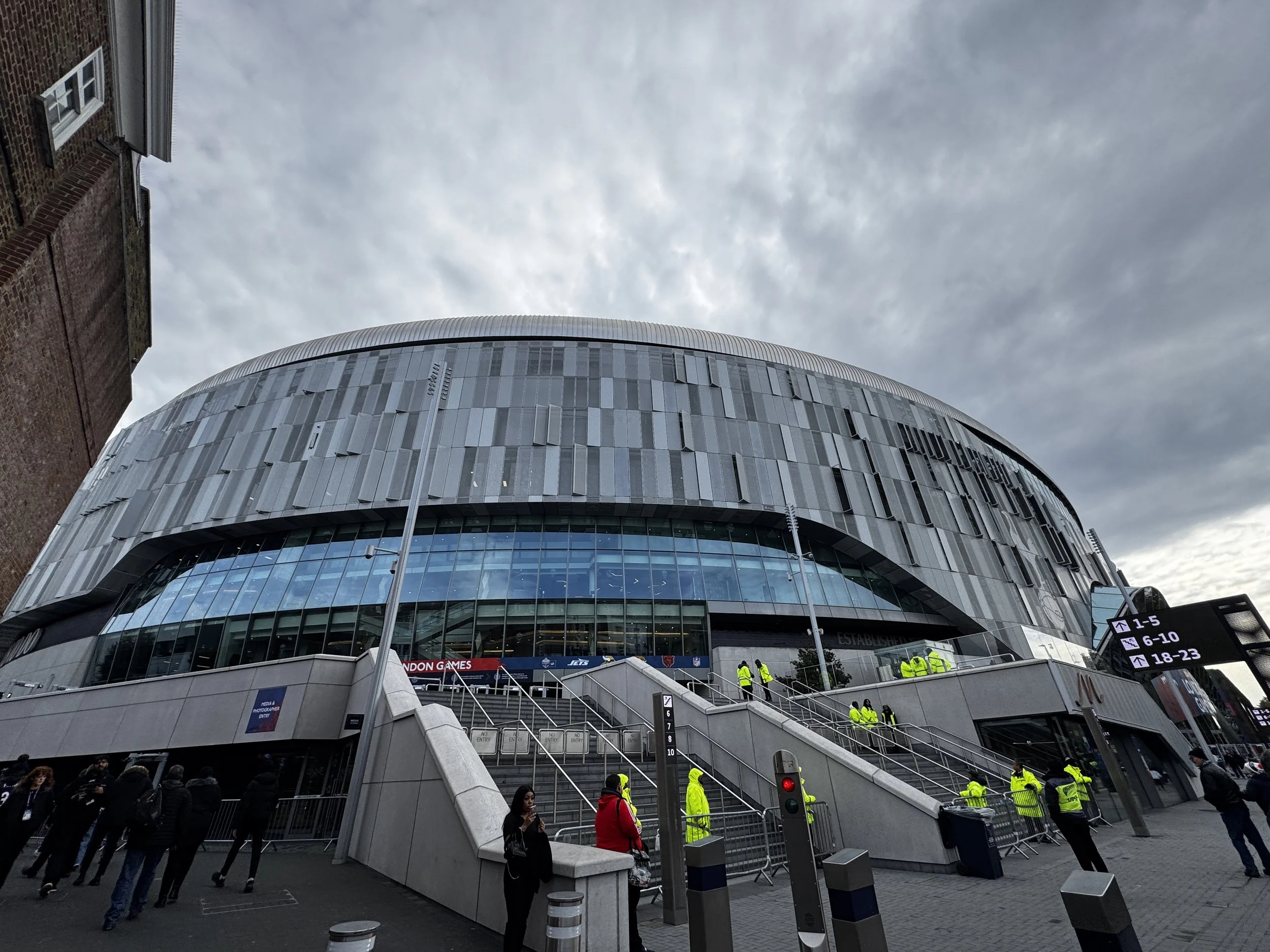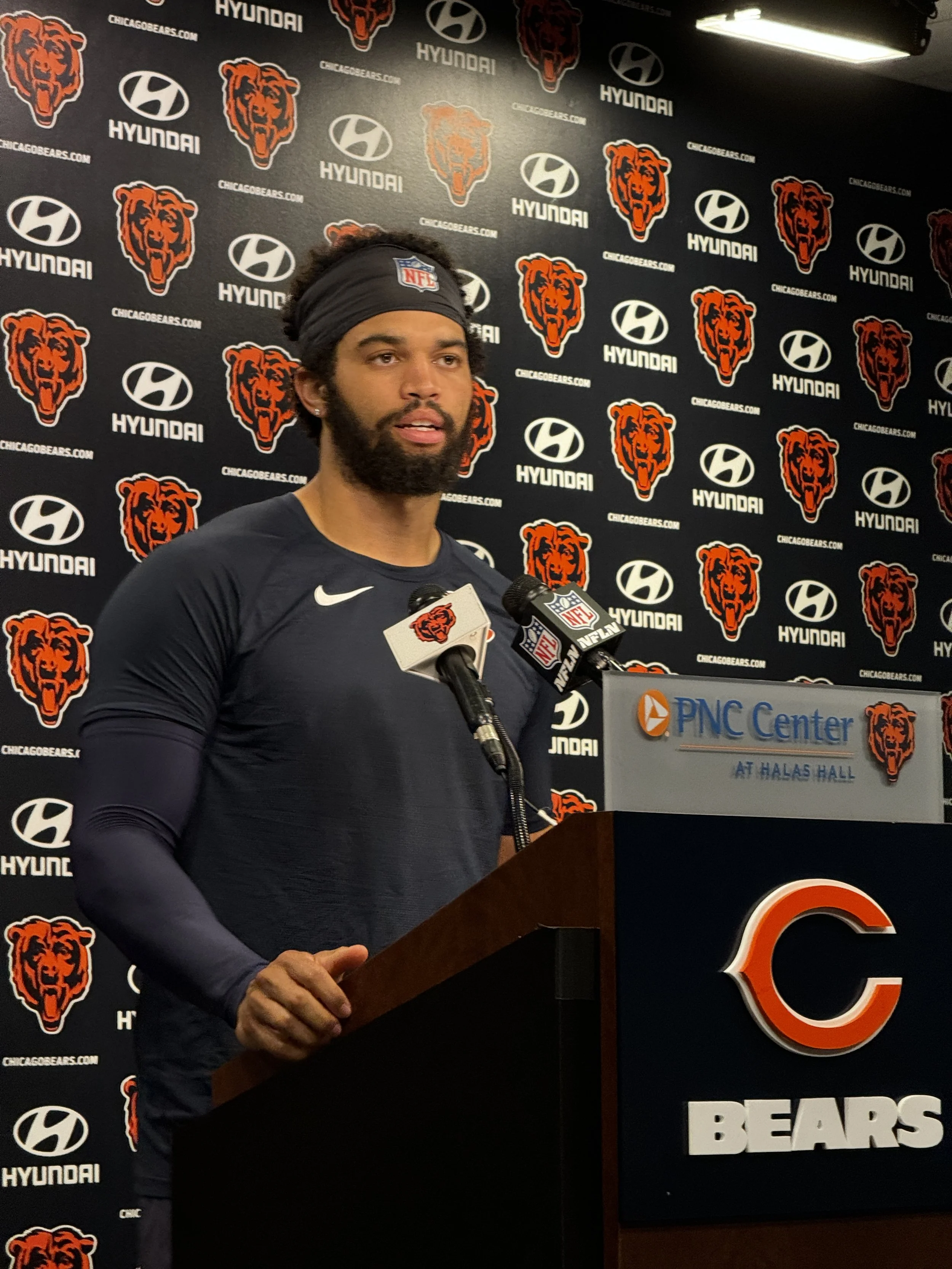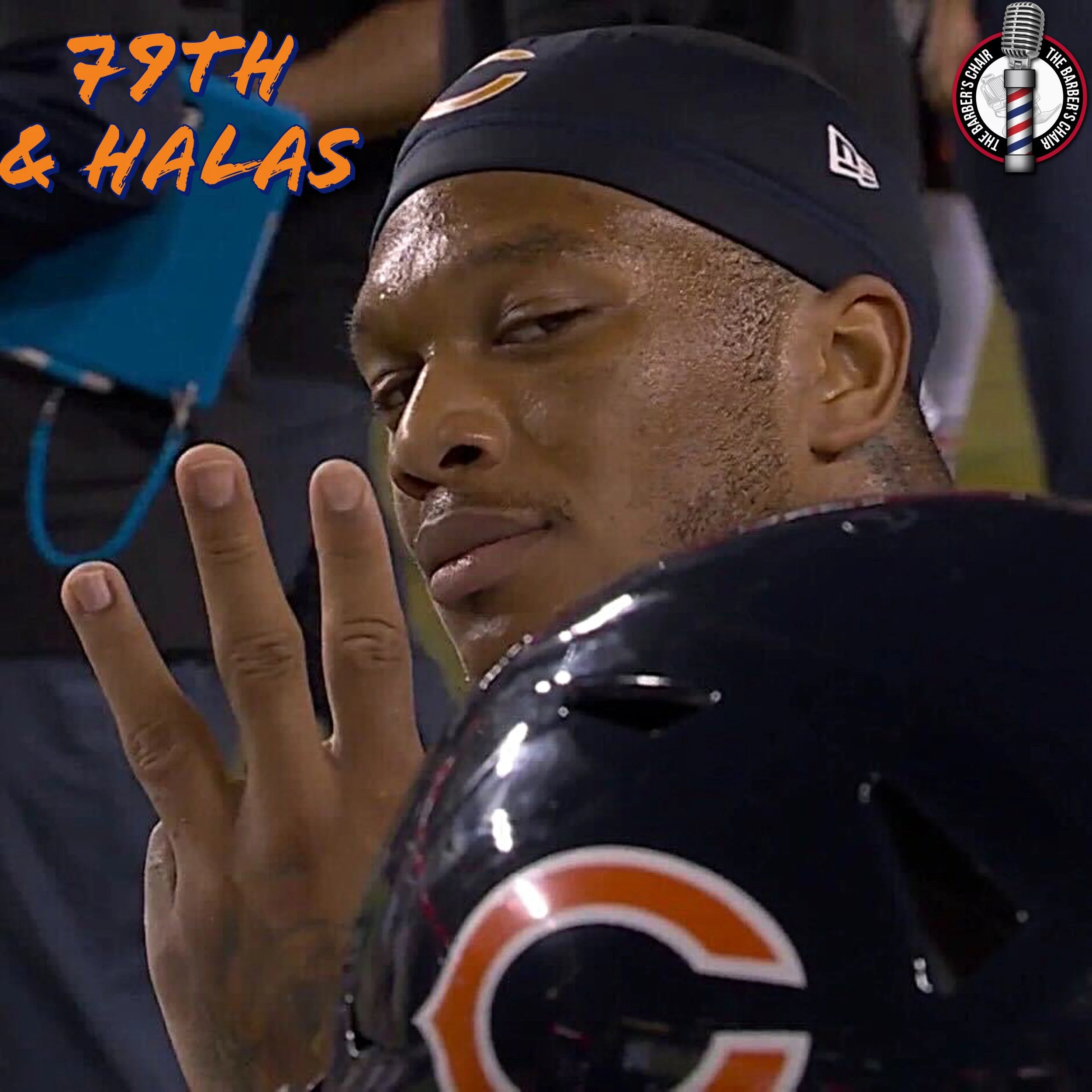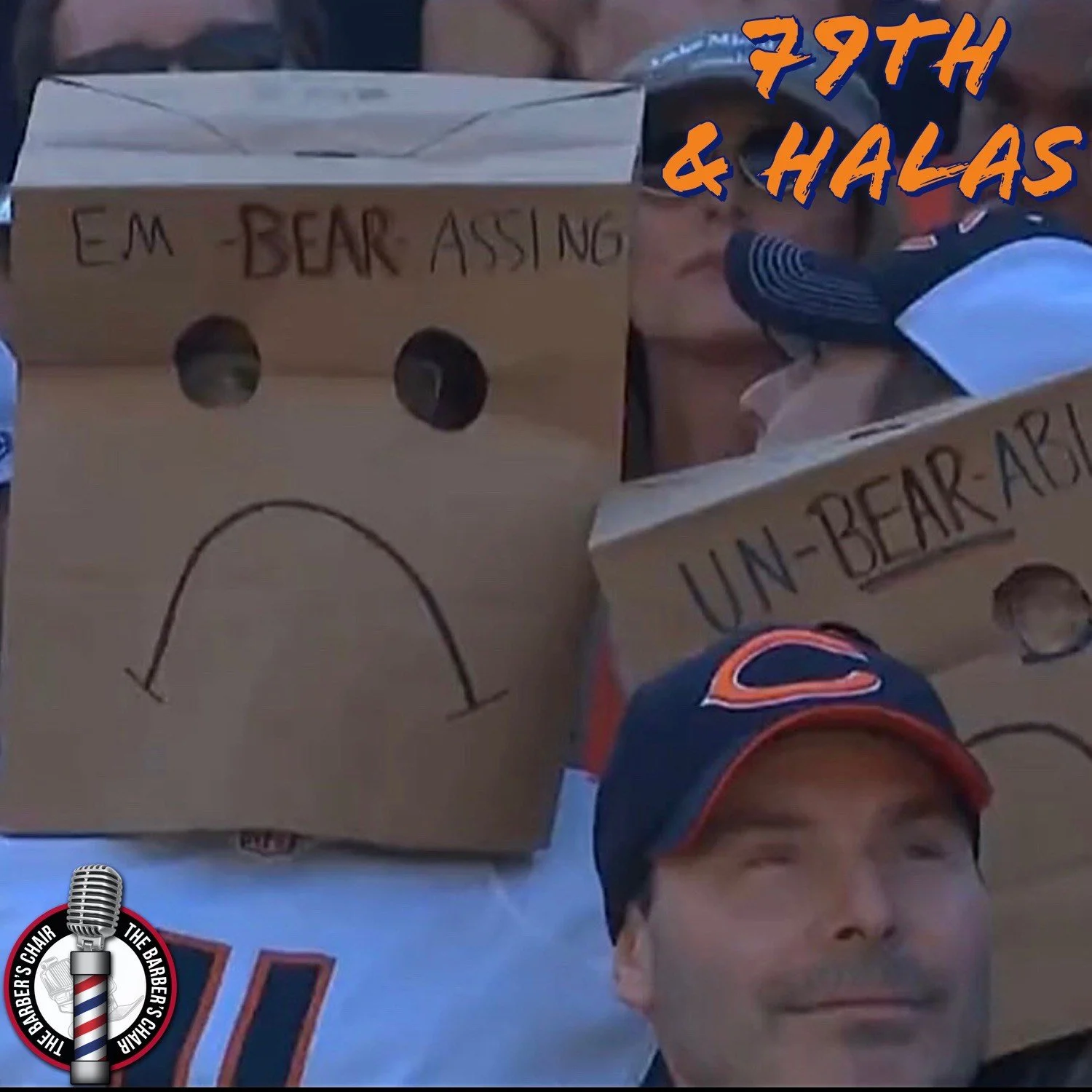Pic by Scott Lewis
It’s January 29th, 2025, and the Chicago Bears have done the unthinkable. Well, let me specify: they have done what was once considered impossible for them. The Bears are a franchise that has been mired in mediocrity for quite some time, with one of their biggest issues being the inability to hire the “right” head coach. But for what feels like the first time ever, the Bears made that right move. Former Detroit Lions offensive coordinator Ben Johnson is now the head coach of your Chicago Bears. As someone who has covered this team for five years, I’ve had more than my fair share of moments spent shaking my head at moves that seemed baffling, if not outright foolish. Whether it was the drafting of Mitchell Trubisky or the hiring of Marc Trestman, the Bears have repeatedly muddied their storied history with questionable decisions. Yet, here we are in 2025, and the Bears are making the kind of moves that even the harshest critic has to acknowledge—if not applaud.
On January 21st, Ben Johnson was named the 20th head coach of the Chicago Bears (including the Decatur Staleys), in a move that was as obvious as it was necessary. The Bears have firsthand experience with Johnson’s offensive mind. Most fans and critics will remember the efficiency with which the Lions operated: the running back tandem of David Montgomery and Jahmyr Gibbs combined for over 2,000 rushing yards, while quarterback Jared Goff threw for well over 4,000 yards. But for me, it’s the “stumble touchdown” that remains ingrained in my memory. Taking advantage of defenders’ natural tendency to react to a falling player, Goff faked a stumble for a wide-open touchdown. It was brilliant to see in person, and it’s plays like that that make you a believer in Ben Johnson. While his youth is a plus, it’s his innovative mind that represents exactly the kind of leadership this franchise needs to break free from its cycle of complacency. Simply put, if you had the chance to hire Johnson, you did it without hesitation. Anything less would have been executive malpractice. Even if it doesn’t work out in the long run, this was a decision rooted in logic and vision—a far cry from some of the hires we’ve seen in recent years.
Adding to the excitement are the other coaching hires. Bringing in J.T. Barrett as the quarterbacks coach was a brilliant move, and one I am going to irrationally praise. Barrett’s success at THE Ohio State (undefeated against TTUN) and his experience with the Lions give him credibility as a mentor for Williams, who will need all the support he can get. While Barrett wasn’t responsible for play-calling duties, he oversaw Jared Goff’s best years in the NFL, and that experience will be invaluable to Caleb. Adding to this already impressive coaching staff is lauded defensive coordinator and former New Orleans Saints head coach Dennis Allen. At a time when the Bears are searching for consistency and identity on defense, Allen brings clarity and purpose to a team looking to reclaim its title as the “Monsters of the Midway.” Rounding out the hires is Declan Doyle as offensive coordinator, a former tight ends coach in Denver. This move is a bit trickier to decipher. He’s young (28 years old) and does not have a ton of NFL coaching experience (five years). That said, Ben Johnson has praised his “innovative mind,” and in a league where offensive coordinators are often top choices for head coaching positions, having a young mind to mold and shape is a good thing. All of these hires point in one direction: Ben Johnson intends to win and win now. For once, it feels like the Bears are thinking with clarity and foresight rather than making moves just for the sake of making them.
I’d be remiss, however, if I didn’t address the elephant in the room: Ryan Poles. Here at The Barber’s Chair Network, we’ve had a variety of opinions on him. Some were praiseworthy, while many were critical, with some even calling for his firing. Not long ago, Poles seemed to be on the verge of running out of goodwill. Whether it was his curious choices in coaching staff or his unconventional approach to roster-building—prioritizing skill position players over the offensive line—the criticisms were loud and, often, valid. His decision to build the team backward is something I still struggle to understand, as the Bears have consistently struggled in the trenches. However, these recent moves have given Poles an opportunity to rewrite that narrative. The offensive and defensive lines remain glaring needs, but with the right additions, he could finally provide this team with the foundation it has sorely lacked. This is where the hiring of Ben Johnson should help; Johnson’s offensive philosophy demands a strong line. You can’t have a 2,000-yard rushing attack and a 4,000-yard passer without it. The hope, both mine and that of Bears fans, is that the demands of Johnson’s offense will push Poles to make it a priority. If Poles can address this issue—and if the Bears' new staff can develop their young talent—there is reason to believe this franchise could finally turn the corner.
Covering the Bears hasn’t been easy. The losing seasons, the questionable decisions, the endless cycle of mediocrity…it’s all been exhausting. While I am forever grateful for the opportunity to cover what feels like a first love for me, it’s time for the Bears to put this plan into high gear. The feelings that Bears have now, ones they haven’t felt in a long time, need to be followed by decisive action. The fans deserve more than just hope—they deserve pride. Pride that this organization is finally making the kinds of decisions that make sense. Pride that, even if things don’t work out, they are at least taking the right kinds of risks. Pride that maybe, just maybe, the Bears are finally headed in the right direction. The road ahead is still uncertain and there are still plenty of holes to fill and narratives to change. But for now, you’ve got to give credit where it’s due: the Bears are finally doing things the right way. And for someone, like myself, who has watched this team stumble over itself time and time again, I can’t tell you how good it feels to say that.

